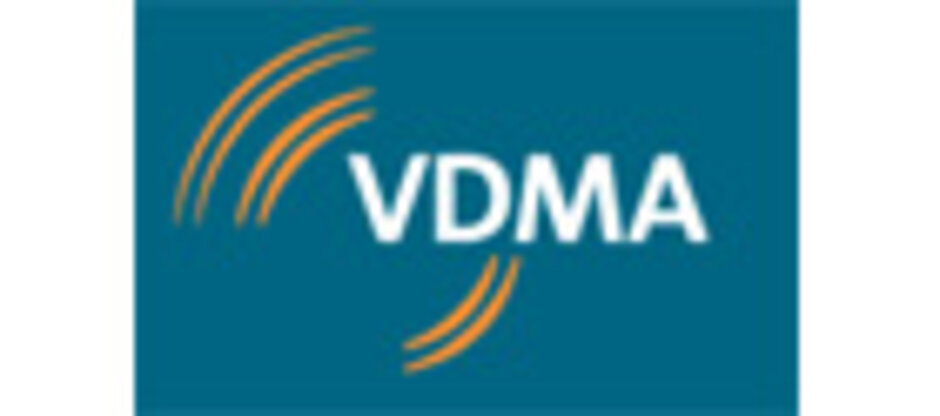Medical technology is a field that still has enormous automation potential, as can be seen at the joint stand of the VDMA Robotics + Automation Association at MedTec Europe in Stuttgart from 22 to 24 March 2011.
Nine leading manufacturers of robots from among the membership of the VDMA Robotics Division equip the stand; this project kick-starts an entire robotics road show. The events' aim is to make growth industries more aware of automation technology and the benefits it has in store for them.
Period of intense automation for medical technology
The companies, together with their association, have combined their efforts and opted for a joint stand, putting into reality a powerful presentation that will familiarize the experts visiting MedTec with the opportunities only automation technology offers. Other member companies affiliated to the VDMA, such as Epson or Stäubli, have even own stands to show their products. Stefan Sagert, Head of the VDMA Robotics Division says: "Medical technology has just begun to benefit from the full potential of automation." And even industry experts are surprised to see how fast automation technology is penetrating the pharmaceutical and medical sectors.
The 2010 edition of the MedTech industry report published by the German Medical Technology Association (BVMed), Berlin, shows that the total turnover of the producing companies of the medical technology sector in Germany has been impacted by the crisis, but still comes in on an impressive € 18.3 bn. The audit company Ernst & Young in their 2010 Medical Technology Report rates medical technology as one of the prime movers of the German economy. To be able to translate this massive innovative strength into efficient production, the use of the large range of automation technologies available will be indispensable, say VDMA representatives.
MedTec shows how versatile automation is
Dr Michael Wenzel, Managing Director of Reis Robotics, sees the joint stand as an ideal tool to promote the versatility of the automation technology: "At the MedTec, we are probably able to generate far more attention than individual companies would achieve." The combined effort exceeds the level of previous activities and is an intense and ideal launch pad for the first tentative steps, he adds. Indeed, the participating exhibitors intend to sound out the market. Gerald Mies, Managing Director of Fanuc Robotics Deutschland explains: "The joint operation of the association makes it possible for robot manufacturers to promote automation technology in general and each individual exhibitor can actually demonstrate its unique strengths." The association and the exhibitors agree that their concerted presence would enable them to communicate a maximum of information on the extensive commitment and the current level of the technologies. Joachim Melis, Managing Director of Adept Technology, expects that the joint stand will be a hub for all visitors who take an interest in robotics. Like all the other manufacturers, he intends to "extend our market share in medical technologies in the next years and serve the medical research sector as an initiator and enabler for new processes and applications".
"In general, the robotics industry is expected to grow markedly in two segments in particular", says Stefan Sagert. Employing robots for the production and assembly of medical devices and products was a matter of course. Safety of the production process, cost transparency, quality and reliability at affordable costs can only be achieved with automated equipment for production in Germany. Sagert: "Whoever intends to extend their capacities from a small business to an international supplier will not be able to do without the automation standard offered by our manufacturers".
Robots working on and for patients
The VDMA and its member companies perceive another focus of application for robots and robotic technologies in the direct use of robots on and for the patient as well as in healthcare. "The inherent potential has not even been rudimentary explored, let alone implemented", explains Sagert. There are no clear-cut boundaries to conventional production or service robotics. The grinding of an artificial hip can be classified as an industrial process; the transport of medicine in a hospital with the help of autonomous vehicles might just as well go as part of service robotics. The requirements profile of the medical technology industry often refers to the precision of robotic drive units, as Spinea shows at the MedTec. At the same time, there is demand for sensors, grippers or vision systems from the automation technology segment that have to be adapted to the specific requirements of medical technology and its production environment. Anyway, the prerequisites to start an exciting exchange of ideas are perfect at the 120 sqm joint stand (stand no. 8157) at MedTec.
The following companies are eager to welcome you at the joint stand no. 8157:
ABB Automation, Friedberg,
Adept Technology, Dortmund
Denso Europe Robotics Department , Mörfelden-Walldorf
Fanuc Robotics Deutschland, Neuhausen
Kuka Roboter, Augsburg
Mitsubishi Electric Europe, Ratingen - represented by Robotronic, Winterthur
Reis Robotics, Obernburg
Spinea, Presov/SK
Yaskawa Europe Robotics Division, Allershausen


